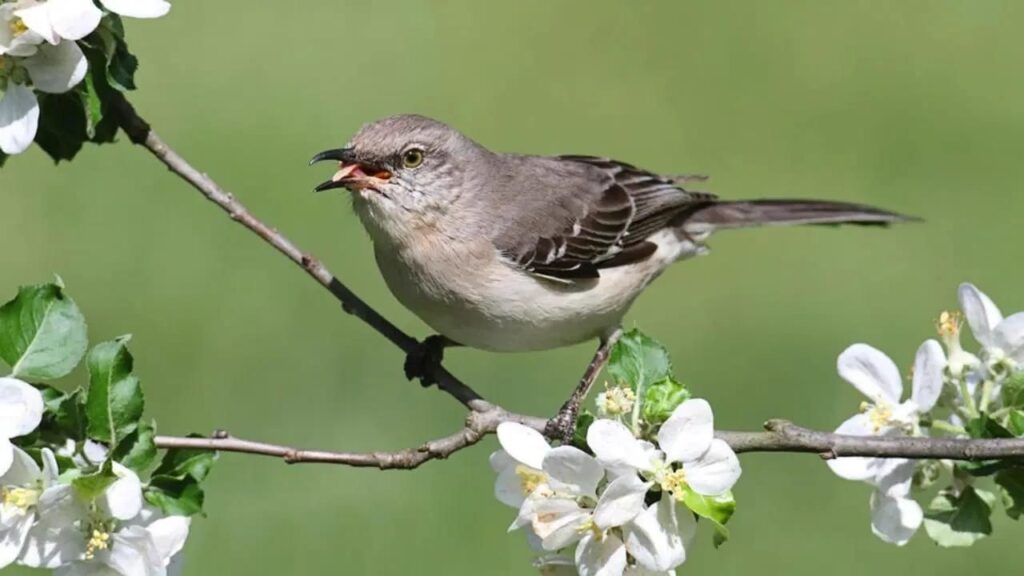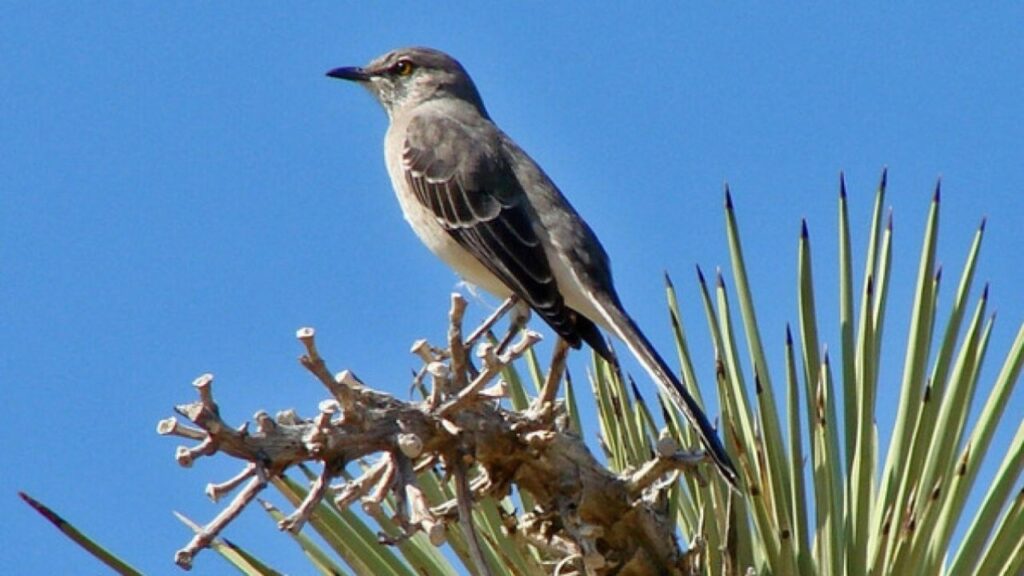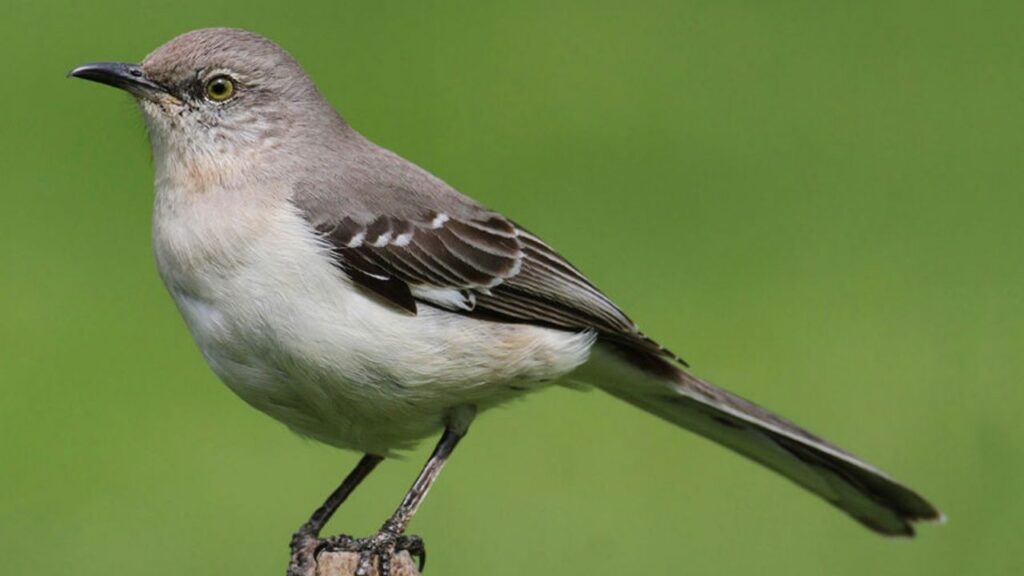Will Mockingbirds Attack Humans? Mockingbirds can attack humans, especially during the breeding season when they are defending their nests.
Mockingbirds are fascinating creatures known for their vocal prowess and territorial nature.
These birds, commonly found in suburban areas, often captivate bird enthusiasts and casual observers alike with their impressive mimicry and bold behavior.
However, their aggressive tendencies, especially towards humans, can be a cause for concern. Understanding the reasons behind their aggression is crucial for peaceful coexistence.
This article delves into the behavior of mockingbirds, the factors influencing their aggression, and practical tips for avoiding confrontations.
Contents
- 1 Who Are Mockingbirds?
- 2 Mockingbirds’ Territorial Nature
- 3 Breeding Season Aggression
- 4 Interactions with Humans
- 5 Environmental Factors Influencing Aggression
- 6 Aggression Tactics of Mockingbirds
- 7 Preventing Mockingbird Attacks
- 8 Understanding Mockingbird Behavior
- 9 FAQs
- 10 Conclusion: Will Mockingbirds Attack Humans?
Who Are Mockingbirds?
Mockingbirds, specifically the Northern Mockingbird (Mimus polyglottos), are medium-sized songbirds native to North America.
They are easily recognizable by their gray feathers, white wing patches, and long tails. These birds are highly adaptable, thriving in various habitats ranging from forests to urban environments.
Mockingbirds are omnivorous, feeding on insects, fruits, and seeds. [Will Mockingbirds Attack Humans?]
Their most notable characteristic is their ability to mimic the songs of other birds and even mechanical noises, earning them the moniker “mimic thrush.”
Mockingbirds’ Territorial Nature
Mockingbirds are inherently territorial, vigorously defending their territory against intruders.
This territorial instinct is especially pronounced during the breeding season when they are protecting their nests and offspring.
Their territory typically includes their nesting site and the surrounding area, which they patrol regularly.
Intruders, whether other birds, animals, or humans, are often met with aggressive displays such as loud vocalizations, wing-flashing, and physical attacks.
Their territorial behavior is not just limited to protecting their nests; it also plays a crucial role in their mating rituals.
Male mockingbirds use their territorial displays to attract females and deter rival males. [Will Mockingbirds Attack Humans?]
The size and quality of their territory can directly influence their success in finding a mate, as females prefer males who can provide a safe and resource-rich environment for raising their young.

Breeding Season Aggression
The breeding season, which generally spans from early spring to late summer, is a critical period for mockingbirds.
During this time, their aggressive behavior intensifies as they strive to protect their nests and ensure the survival of their young.
Mockingbirds construct their nests in dense shrubs or trees, often close to human habitation. They exhibit heightened vigilance and are quick to attack any perceived threat to their nests.
Common defensive actions include dive-bombing, swooping, and relentless chasing of intruders. [Will Mockingbirds Attack Humans?]
Mockingbirds are known to raise multiple broods each year, which further increases their aggressive behavior during the breeding season.
Each brood requires a significant investment of time and energy from both parents, making the protection of their nesting site paramount.
This relentless defense mechanism is crucial for the survival of their offspring, as it deters potential predators and minimizes the risk of nest predation.
Interactions with Humans
Human interactions with mockingbirds can sometimes lead to aggressive encounters, particularly during the breeding season.
Mockingbirds may perceive humans as threats to their territory or nests, prompting them to engage in defensive behaviors.
Cases of mockingbirds attacking people are well-documented, with victims often describing swooping attacks and loud scolding calls.
Interestingly, mockingbirds have the ability to recognize individual humans and remember those they perceive as threats, targeting them repeatedly while ignoring others.
This ability to recognize and remember specific humans highlights the intelligence and adaptability of mockingbirds.
It also underscores the importance of understanding their behavior and taking steps to minimize conflicts.
By respecting their space and avoiding actions that may be perceived as threats, humans can reduce the likelihood of aggressive encounters with these birds.

Environmental Factors Influencing Aggression
Several environmental factors can exacerbate the aggressive behavior of mockingbirds. [Will Mockingbirds Attack Humans?]
High temperatures, for instance, can increase their agitation and stress levels, leading to more frequent and intense attacks.
Additionally, studies have shown that exposure to environmental pollutants like lead can amplify their territorial aggression.
Suburban environments, with their abundance of nesting sites and food sources, also play a role in shaping mockingbird behavior.
The presence of human activity in these areas often leads to more frequent interactions and potential conflicts.
Mockingbirds have adapted remarkably well to urban and suburban environments, which provide ample food and nesting resources.
However, these areas also present unique challenges and stressors, such as noise pollution and increased human activity.
These factors can contribute to heightened aggression as mockingbirds navigate their complex and often crowded habitats.
Aggression Tactics of Mockingbirds
Mockingbirds employ a variety of tactics to defend their territory and offspring. These tactics include:
- Posturing and Preening: Mockingbirds puff up their feathers and stretch their bodies to appear larger and more intimidating. This display serves to deter potential threats.
- Chasing: Mockingbirds will chase intruders away from their territory, often following them for considerable distances.
- Distraction Displays: To divert attention from their nests, mockingbirds engage in loud vocalizations and erratic movements, drawing predators away.
- Alarm Calls: These loud, high-pitched calls serve to alert other birds to the presence of a threat and to scare off intruders.
- Physical Attacks: In extreme cases, mockingbirds may resort to physical attacks, dive-bombing and pecking at perceived threats.
These aggressive behaviors are not just defensive mechanisms; they also serve as important signals to other mockingbirds. [Will Mockingbirds Attack Humans?]
By displaying their aggression, mockingbirds communicate their dominance and territorial boundaries, reducing the likelihood of conflicts with other birds.
This complex interplay of aggression and communication is essential for maintaining social order within mockingbird populations.

Preventing Mockingbird Attacks
While mockingbird attacks are generally non-harmful, they can be unsettling. Here are some practical tips to avoid aggressive encounters with mockingbirds:
- Maintain Distance: If you know the location of a mockingbird nest, avoid approaching it. Give the birds plenty of space to reduce the likelihood of an attack.
- Wear Neutral Colors: Mockingbirds are less likely to be provoked by neutral or muted colors. Avoid bright or flashy clothing that may attract their attention.
- Avoid Sudden Movements: Move calmly and slowly when near a mockingbird’s territory. Sudden movements can be perceived as threats.
- Use Reflective Objects: Hanging shiny objects like old CDs or aluminum foil near nesting areas can deter mockingbirds from approaching.
- Provide Alternative Food Sources: If mockingbirds are frequenting your yard, consider setting up bird feeders away from high-traffic areas to reduce conflicts.
- Supervise Pets: Keep pets indoors or supervise them closely when outside to prevent them from provoking mockingbirds.
By following these guidelines, individuals can minimize the risk of aggressive encounters with mockingbirds and foster a more harmonious relationship with these remarkable birds.
Understanding Mockingbird Behavior
Understanding the reasons behind mockingbird aggression can foster a greater appreciation for these birds and promote peaceful coexistence.
Their aggressive behavior, while sometimes alarming, plays a crucial role in their survival and reproductive success. [Will Mockingbirds Attack Humans?]
By defending their territory and offspring, mockingbirds ensure the continuation of their species. Additionally, their boldness and adaptability make them fascinating subjects of study and observation.
The study of mockingbird behavior also provides valuable insights into broader ecological and evolutionary principles.
Mockingbirds’ aggressive tactics and territorial instincts are shaped by natural selection, highlighting the importance of behavior in the survival and reproduction of species.
This understanding can inform conservation efforts and enhance our appreciation of the intricate dynamics within ecosystems.
See Also: Will Crows Attack Humans? The Hidden Dangers!
FAQs
Why do mockingbirds attack humans?
Mockingbirds attack humans primarily to defend their territory and nests. They perceive humans as potential threats and engage in aggressive behaviors to protect their offspring and resources.
Are mockingbirds dangerous to humans?
While mockingbirds can be aggressive, their attacks are generally non-harmful. They may swoop and dive-bomb, but they rarely cause physical injury.
How can I avoid mockingbird attacks?
To avoid mockingbird attacks, maintain a safe distance from their nests, wear neutral colors, avoid sudden movements, and use reflective objects to deter them.
What should I do if a mockingbird attacks me?
If a mockingbird attacks, remain calm and slowly move away from the area. Avoid making sudden movements that could further provoke the bird.
Do mockingbirds attack other animals?
Yes, mockingbirds are known to attack other animals, including other birds, cats, and dogs, especially if they perceive them as threats to their nests.
Can mockingbirds recognize individual humans?
Yes, mockingbirds have the ability to recognize individual humans and may target those they perceive as threats while ignoring others.
Conclusion: Will Mockingbirds Attack Humans?
Mockingbirds, with their remarkable vocal abilities and bold territorial behavior, are truly captivating creatures.
While their aggressive tendencies, especially towards humans, can be challenging, understanding the reasons behind their behavior can help mitigate conflicts.
By respecting their space and taking preventive measures, we can coexist peacefully with these fascinating birds.
Whether you are a bird enthusiast or a casual observer, appreciating the complexity of mockingbird behavior can enrich your experience of the natural world.
In summary, mockingbirds’ aggression is a multifaceted behavior influenced by territorial instincts, environmental factors, and their interactions with humans.
By understanding and respecting these factors, we can foster a more harmonious relationship with these remarkable birds, ensuring that both humans and mockingbirds can thrive in shared environments.

Hello, I am Rosa Ellis, a mother of two and a wildlife blogger. I grew up in New York City, but I love exploring forests. I’ve traveled to places like Yellowstone National Park and the Amazon Rainforest to see animals up close. I know a lot about animal behavior and which animals can be dangerous to humans. Thanks for visiting my blog!

